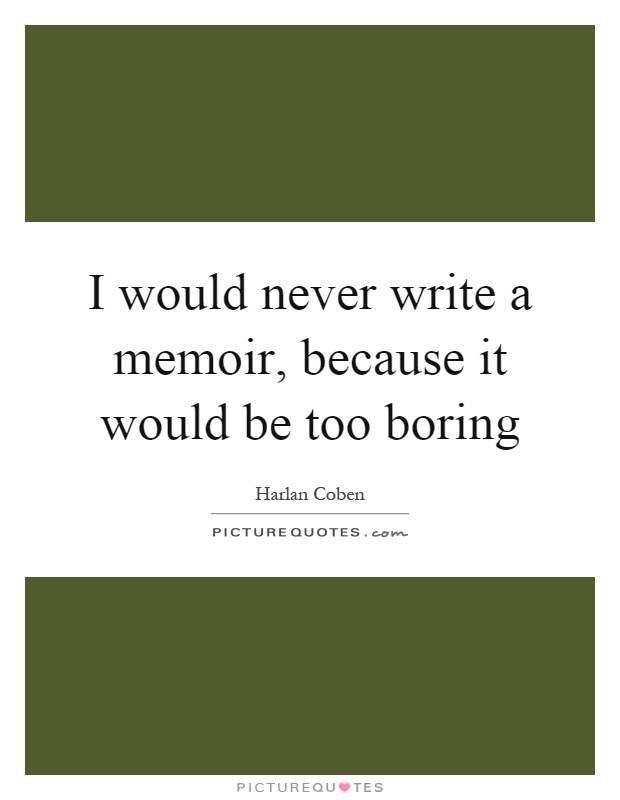
A lot of people feel like the quote above. My life? In a memoir? You've got to be kidding! Your life might be more interesting than you think. I contend that it's not necessarily what happened to you but how you write about it.
There are memoir or life story workshops going on everywhere, or so it seems. One of the standard activities at senior centers or senior living places is an ongoing class to help older people capture their lives through words--to help them leave a written record for their families. I'm all for it as, even though stories get told around a dinner table, they will eventually get lost. Write them and they're forever.
I once gave a program on Grandparents Day to a women's group. I asked people in the audience to tell us one thing they remembered about their grandmother or grandfather. The stories that were told were all fascinating. Some were amusing while others tugged at the heart. A few were sad. The point is that every one in that group had a story to tell and the others were interested in hearing it. I urged them to write the story after they returned home. I imagine only a few actually did so. Maybe none. If you can tell a story, you can write it!
The question here for today is how are you going to write a memoir story that is also an interesting read? I'm referring to a short piece highlighting one event or experience, not a full book of an entire life.
First and foremost, keep in mind that writing a memoir, whether a story or a book, means that you are telling the truth. What you write had to have actually happened. Do memoir writers embellish the facts? I'm sure many do. The important thing is to keep the embellishments small; stick with the truth as much as you can. Those added decorations to the story may not be lies at all; we may remember something that occurred fifty years ago a little differently now than when it happened.
Don't merely report what happened in actual sequence. A memoir like turns into exactly that--a report. It's not a story. Use the same techniques you would in a fictional short story.
A few things to keep in mind as you write:
A few things to keep in mind as you write:
- Start with a bang! Grab your reader's interest right away.
- Organize your story with a beginning, middle and ending. In other words, introduce what happens, build on it and then bring it full circle to end.
- Use active verbs instead of passive like was, is, are to make the story visual and more interesting.
- Use adjectives to describe but keep them to a minimum. Less is always better than more with words like these
- Add sensory details--show them rather than telling your reader about a smell or sound etc.
- Let your feelings about what happened come through your story; in a memoir we are tasting life twice and often baring our souls as we do so.
- Readers like surprise endings; try to finish with something unexpected.
Like any story, your first draft will not be perfect. Whether you have never written before or if you're a professional who gets paid for writing, your first draft is the bones of your final story. Like any fiction story, you must also edit and revise until you are satisfied.
My state authors group has an annual contest with several categories. The highest number of entries is always in the Memoir category. And they come from people of all ages. Don't ever think that you have to be in the winter of your years to write a memoir.




No comments:
Post a Comment